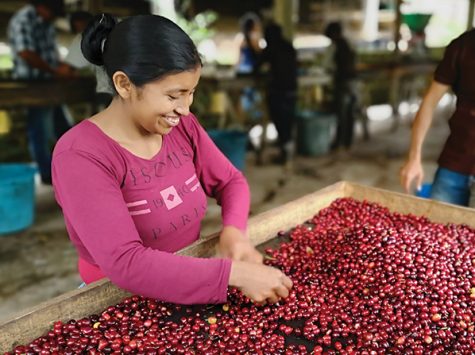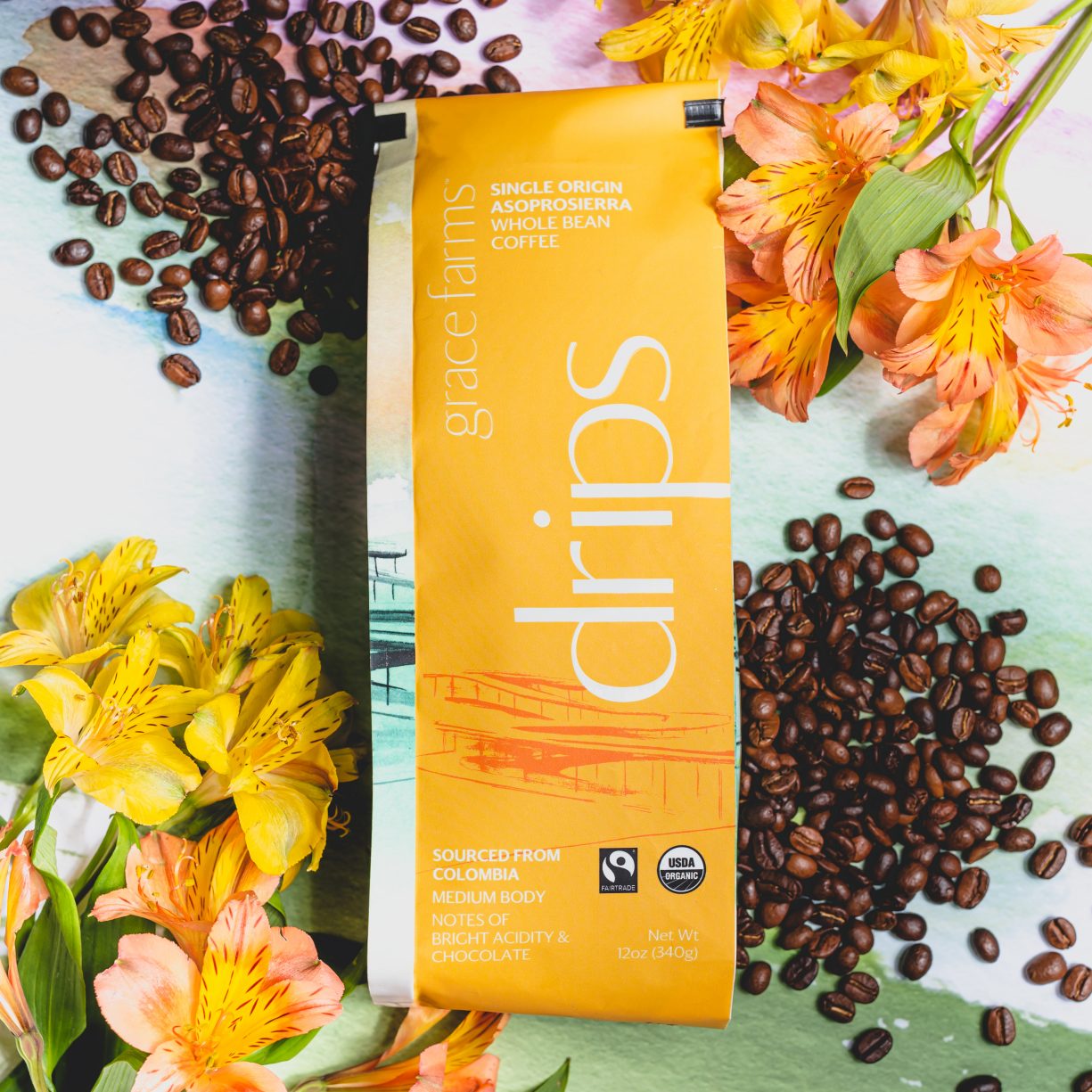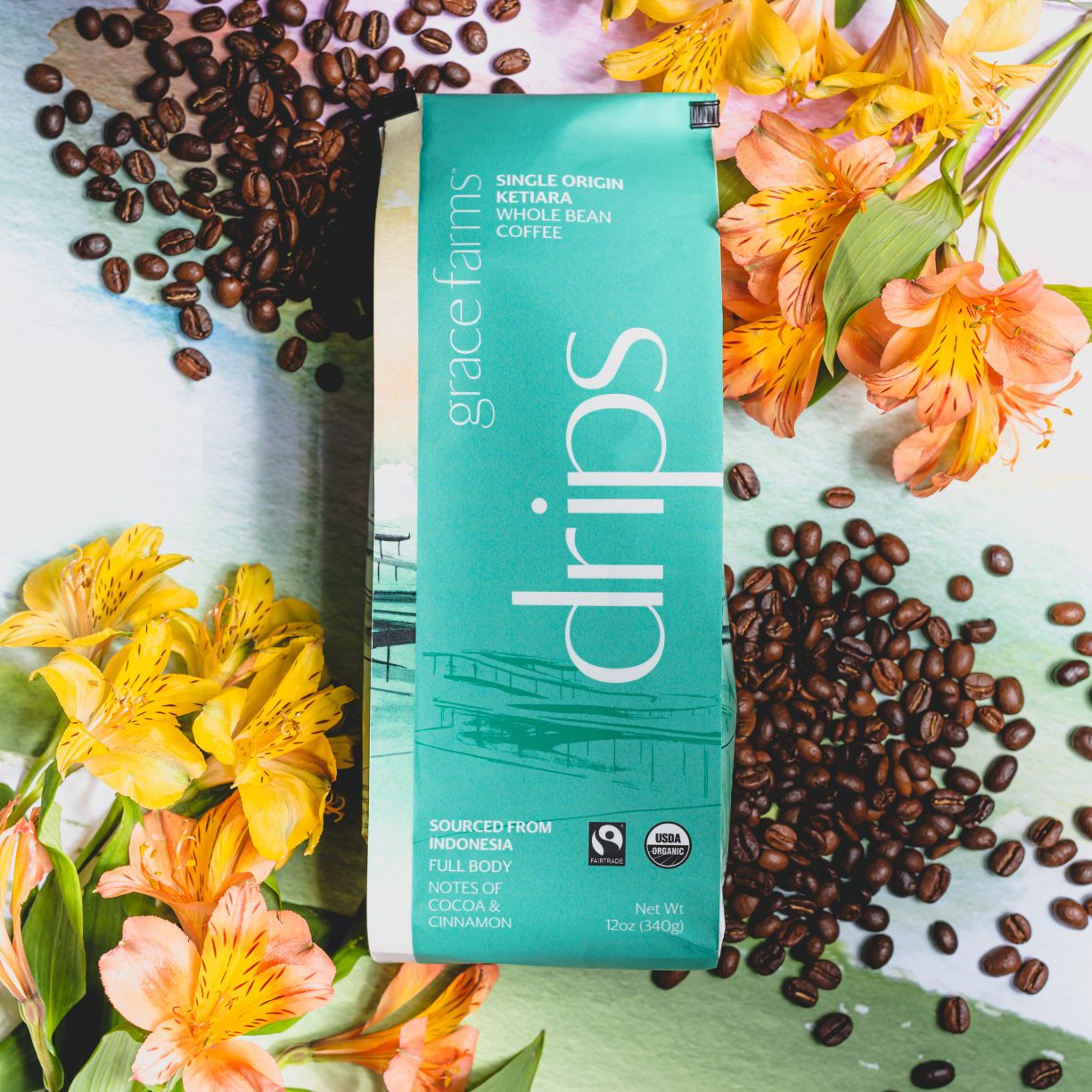Originally published by Fairtrade America on June 25th, 2021
WE ARE THRILLED TO SHARE ABOUT ONE OF OUR NEWEST FAIRTRADE PARTNERS, GRACE FARMS FOODS. WE SAT DOWN WITH CO-FOUNDER ADAM THATCHER TO LEARN MORE ABOUT HOW HIS COMPANY IS TAKING SOCIAL ENTREPRENEURSHIP TO THE NEXT LEVEL AND HOW IMPORTANT FAIRTRADE IS TO ITS MISSION.
Thank you for your time today, Adam. Please introduce yourself.
I’m the co-founder of Grace Farms Foods. A new benefit corporation created to benefit and extend the mission of Grace Farms Foundation and brand of Grace Farms, located in New Canaan, Connecticut.

How did Grace Farms Foods come to be?
It all came about because of the work of Grace Farms and Grace Farms Foundation. Grace Farms is a public place that is open for anyone to come visit and it facilitates the work of Grace Farms Foundation, which is a 501c3 private operating foundation and has five core initiatives: nature, arts, justice, community, and faith.
Within that, we do work related to forced labor, environmental stewardship, and bringing people together, supporting and fostering community. And so those three areas in particular have a lot of alignment with what we wanted to create for a consumer packaged food company. We created Grace Farms Foods to be able to extend the experience of Grace Farms for people who wanted to participate in the work, the beauty, the onsite experience and also the community that has become Grace Farms.
The profits go back to fund Grace Farms Foundation to support the work of the foundation but built into the products are all of those values. From an art side, it could be the beautiful packaging. From a forced labor and human rights and justice side of things, partnering with Fairtrade International for our coffee. Gender parity, sourcing from women led co-ops in Ethiopia, Colombia, and Indonesia. And from an environmental stewardship side, sourcing organic ingredients in biodegradable packaging, and again, Fairtrade International standards that support environmental stewardship as well. So that’s what we have been creating. We’re getting our B Corp certification now; we’ve got our pending status, which is for first-year companies, and we’ll be continuing to build the best company we possibly can.
How do you use your business to create a more equitable world? How do you give back?
A lot of it is in what we’re ultimately creating here; we look at it as a new model of social entrepreneurship. There are so many great examples of fantastic companies that are doing right by the world, but where we take it to this next level is the fact that it’s built into our charter, our purpose, our mission, and literally our legal structure that all the profits go back to funding charitable causes, and this isn’t an easy thing to do. We want to prove that it’s possible for not-for-profit foundations to be able to create an income stream that also demonstrates their charitable purposes.
We would love to see other private foundations adopt our model, where they’re demonstrating and educating about their charitable purposes through a consumer facing vehicle like products. That’s what we’re doing. There’s not a quick exit plan for us, we’re in this for the long haul, and so because of that we can make more thoughtful upfront investments. If other foundations followed that path, which they’re allowed to, we’ve kind of figured this thing out, it just took a lot of work. We’d love to see this new model of 100% profits going back to charitable causes in a more consistent manner.
Where do you see Grace Farms Foods in the future? Say in five years?
A great company that has done a ton of trailblazing is Newman’s Own Foundation and they sort of set the model. We do it slightly different than they do, but in an ideal world, we want to become a household brand name that is demonstrating the values of Grace Farms.
Two key words that we talk about, share and peace. Can we give people those two feelings at home and can we invite a much larger community to be part of the good that we’re creating? In five years, we’d love to be on the shelf of major retailers in the pantries of a lot of the homes in the United States and be considered an inspiring brand for a future entrepreneur.
Why did you choose Fairtrade?

Fairtrade has been a fantastic beacon for creating a model of an ethical and transparent supply chain. It has more rigorous standards than either a first party system that could be developed internally or other third-party systems that are out there. And because of its supply chain tracking it ultimately is not just saying, “we are assuming it’s ethical”, but it’s also creating this transparency that consumers deserve. Fairtrade in particular, the way that our partnership came about was before Grace Farms opened, a very generous supporter of Grace Farms who owns a large coffee roasting operation, offered to donate all the coffee to Grace Farms just to provide to the public, which was incredibly generous.
And our founder Sharon Prince’s response was, “That’s incredibly generous. You know, the only way we could possibly accept this generous donation is if it comes from Fairtrade and women-owned farms,” and the roastery said, “All right, I can figure that out”. They searched the world for some of the best coffee beans and found three sources from women-led co-ops in Ethiopia, Colombia, and Indonesia. And the source in Indonesia and Columbia are certified Fairtrade and we are working to get the Ethiopian source certified Fairtrade as well. Knowing that two of the three sources for our coffee was Fairtrade that we wanted to honor those communities.
The process that those co-ops have gone through for Fairtrade certification and for us to make these single origin coffee varietals for our customers to be able to taste and be able to buy and support everything that is associated with those bags. That’s ultimately how we ended up with Fairtrade being our partner on coffee, and we look forward to expanding into new areas, helping existing partners become Fairtrade certified. So we see it as a really great partnership for us to begin our journey. Fairtrade gives us the confidence to be able to begin those partnerships before we can visit them ourselves.
Where can customers find your Fairtrade products?
Right now they can be found at www.gracefarmsfoods.com. We are only doing direct to consumer right now, and when Grace Farms reopens, those will be able to be bought onsite. And then sometime in the future they’ll be able to be found in retail in select markets.
What makes your product unique?

I would say in particular for our coffee, what makes it so unique is flavor and roasting. And while we have tons and tons of respect for small batch roasters, which are super important for local economies, there’s an importance to consistency and working with a larger roaster who has processes to guarantee that every bean is roasted the right way, is just as unique for us. To be able to honor the flavor of those beans and the people who grew it, picked it, washed it, packed it, shipped it and got it to the roasting plant. So many hands have touched it that you want that consistency. And to know all those hands along the supply chain there are being honored. We’re not taking any shortcuts the whole way.
What inspires you and your team at Grace Farms Foods to work towards business for good?
I think that it goes back to the whole idea of that business can be done better. The inspiration is showing people that there is a new model for entrepreneurship. It’s niche. But for those private foundations that have an entrepreneurial spirit, this is something that can be duplicated. We still have a long way to, to even call ourselves successful so far but that’s part of the inspiration.
What is one takeaway for customers?
The one thing that I would want people to take away is that you can find meaning in your food.

How can a customer get involved with your brand?
You can give a gift box to somebody, which is sharing the gift of Grace Farms with people. You can get your own, which will also include seasonal updates and highlights. You can also become a subscriber and get a box monthly. If you know, cookies, coffee and tea is not your thing. That’s ok, too. We still want to welcome you to Grace Farms when we reopen in early September 2021. And we’d love to just have you walk the grounds, learn more about how Grace Farms is helping make the world a more peaceful place every day.

























